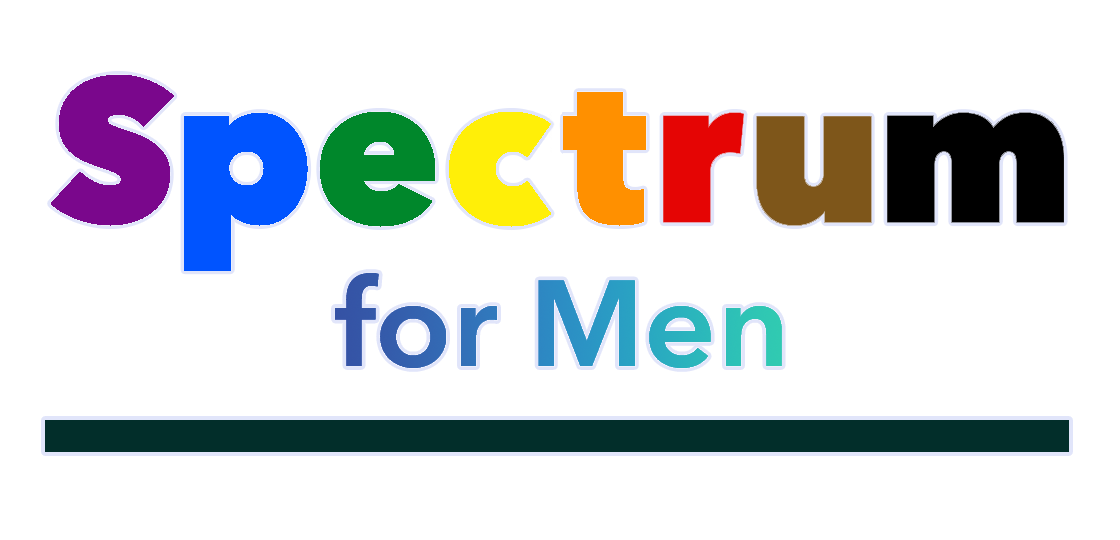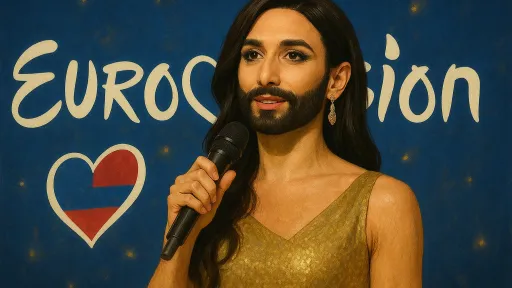Masculinity in the Spotlight: Eurovision Acts that Broke the Mold
Every year, the Eurovision Song Contest delivers more than glitter, modulated falsettos, and viral dance breaks. Beneath the sequins lies something deeper: a powerful stage where masculinity can be questioned, stretched, and redefined — often in front of hundreds of millions of viewers. For many men — especially queer men — Eurovision has become a rare cultural moment where it's not only safe to be different, but celebrated for it.
At Spectrum for Men, we’re all about broadening what it means to be a man in today’s world. So let’s take a look at some unforgettable Eurovision performers who didn’t just sing their hearts out — they dismantled harmful norms and showed us a new kind of strength.
Måns Zelmerlöw (Sweden, 2015)
Song: “Heroes”
Måns may look like your classic pop heartthrob, but his performance walked a careful line between traditional and transformative. He sang not as a lone alpha male, but as a vulnerable narrator with a story of resilience. The animated boy projected beside him during his performance? That wasn’t just a gimmick. It was a metaphor for a man confronting — and ultimately befriending — his own past and pain. Måns reminded us that masculinity can be brave and emotionally nuanced.
Conchita Wurst (Austria, 2014)
Song: “Rise Like a Phoenix”
Arguably one of the most iconic acts in Eurovision history, Conchita Wurst — the drag persona of Tom Neuwirth — didn’t just defy gender norms; she obliterated them. With a full beard and a floor-length gown, Conchita sang an operatic ballad with the fire of a Bond theme and the gravitas of a liberation anthem.
"It's not about fitting into a box, it's about breaking free of them."
--Conchita Wurst
Winning the contest wasn’t just a victory for Austria — it was a watershed moment for queer visibility, gender nonconformity, and reimagining masculinity as something elegant, powerful, and proudly complex. She didn’t rise like a phoenix — she dragged masculinity into a new era.
Duncan Laurence (Netherlands, 2019)
Song: “Arcade”
Quiet. Intimate. Vulnerable. Duncan Laurence did something radical: he won Eurovision with a whisper. No pyrotechnics. No glitter. Just a man, a piano, and his heartbreak.
In a competition that often rewards maximalism, Duncan’s emotional honesty stood out — and it resonated globally. His open queerness wasn’t hidden, but it wasn’t sensationalized either. He brought softness into focus and proved that love — in all its fragility — is masculine, too.
Honorable Mentions
- Maro (Portugal 2022): Gentle masculinity paired with harmonic collaboration across genders.
- Hatari (Iceland 2019): BDSM-clad industrialists raging against capitalism and toxic dominance culture.
- Miki Núñez (Spain 2019): A straight male performer dancing with joy and ease alongside same-gender pairs in a celebration of love and unity.
Why It Matters
Eurovision gives us more than catchy choruses — it offers a rare mirror where diverse masculinities can be reflected and affirmed. It says, You can be soft. You can be strange. You can cry, perform, emote, and transcend. You don’t need to shrink yourself to fit the box.
And for men watching around the world — closeted or out, queer or questioning, neurodivergent or neurotypical, stoic or sentimental — that message isn’t just revolutionary.
It’s life-changing.

